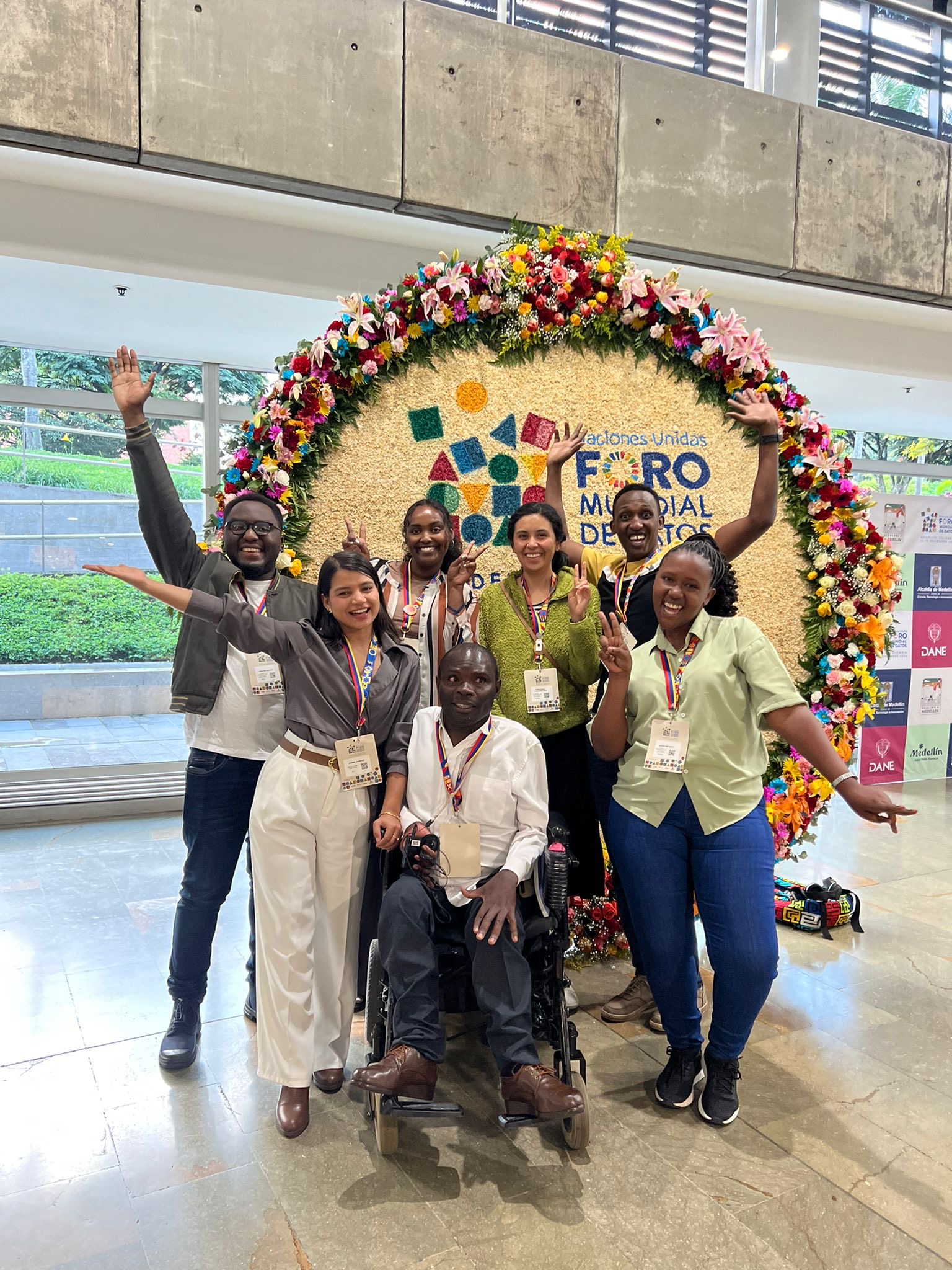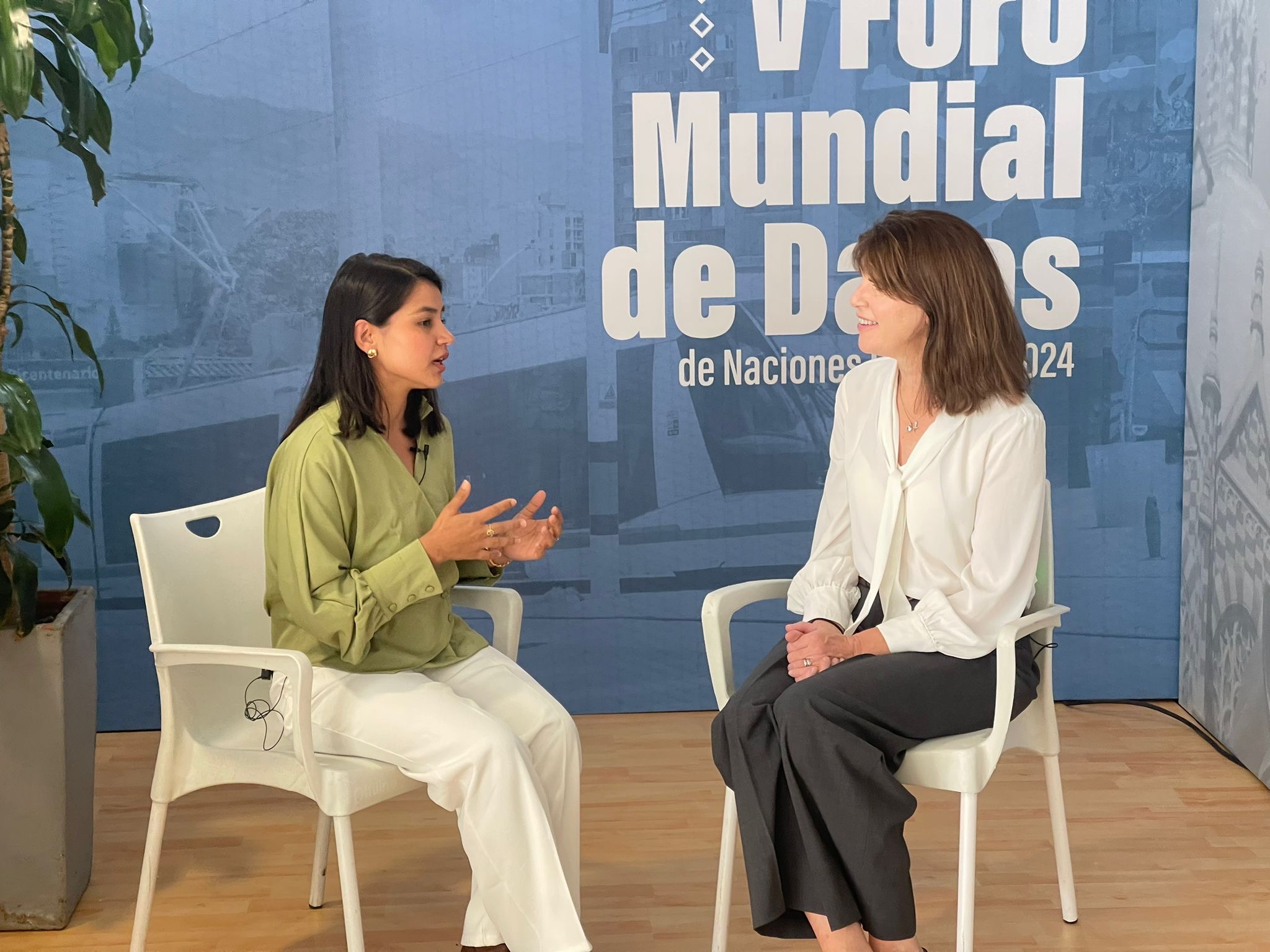
Rubina Adhikari, an NRI postgraduate student, recently attended the prestigious World Data Forum in Medellín, Colombia. Her inspiring journey, detailed in the article below, highlights her role as a Data Values Advocate and her efforts to champion equitable, accessible and actionable data for sustainable development.
I had the privilege of attending the World Data Forum in Medellín, Colombia, from November 12 to 15, 2024. This global gathering aims to inspire data innovation, foster partnerships, mobilise high-level political and financial support, and pave the way for better data to drive sustainable development. I was one of six Data Values Advocates selected globally by the Global Partnership for Sustainable Development Data (GPSDD) under the umbrella of the United Nations Foundation, to champion data that is fair, accessible and representative for both current and future generations.
The Data Values Advocates programme provides training, micro funding, mentorship and support to individuals working at grassroots and community levels who are interested in promoting and implementing the Data Values agenda. Prior to this engagement, I had been deeply involved in youth engagement and global policy processes. Furthermore, as a country coordinator for Gross International Nature (a youth and community based environmental conservation organisation), I conducted case studies and led educational campaigns on the impacts of climate change in the rural mountainous landscapes of Nepal and Bhutan. My work as a Data Values Advocate further expanded my understanding of how equitable data representation can address systemic challenges and drive effective policy change. My project focused on analysing the impacts of climate change, presenting these findings to local governments and influencing policymaking processes. The project's success in bridging data and policy, highlighted the transformative power of actionable insights as I worked closely with communities and local municipalities and contributed my findings in local-level policies i.e. the Local Adaptation Plans for Action. It helped the municipality to address issues specific to the Hyolmo community in Helambu, Nepal.
The World Data Forum provided a platform to amplify this work, connect with like-minded individuals, and draw inspiration from a diverse global community. The forum underscored the importance of not only generating data but also ensuring it is comprehensible, actionable, and inclusive. I learned how even complex datasets can be distilled into meaningful insights for policymakers through effective visualisation and communication tools. For instance, exploring simple, everyday data points, such as the carbon footprint of the oranges we consume or patterns in daily activities, revealed how granular details can shape broader environmental and behavioural predictions when contextualised thoughtfully.

A particularly impactful moment for me was interviewing the CEO of GPSDD as part of a UNICEF initiative, where we delved into the future of data and its implications for upcoming generations. The conversation highlighted the need for innovative, ethical approaches to data governance and the critical role of young voices in shaping a more equitable data landscape. Additionally, in the forum’s closing ceremony, I had the honour of representing youth voices, emphasising the challenges faced by developing regions due to data misrepresentation, deficiencies, and inequities. I called for accountability and collaboration among global leaders and stakeholders to address these issues effectively. Throughout the event, I participated in sessions and workshops that explored topics like artificial intelligence, data governance, and visualisation, deepening my sense of responsibility to continue advocating for data use.

The experience in Medellín was inspiring; the city's warmth and vibrant culture, combined with the dynamic and inclusive atmosphere of the forum, made my participation unforgettable. Initiatives by organisations like UNICEF and the United Nations Foundation to include young people in these global conversations are commendable. I look forward to seeing an increasing presence of young scientists, researchers, writers and professionals contributing to these critical discussions in the near future.

